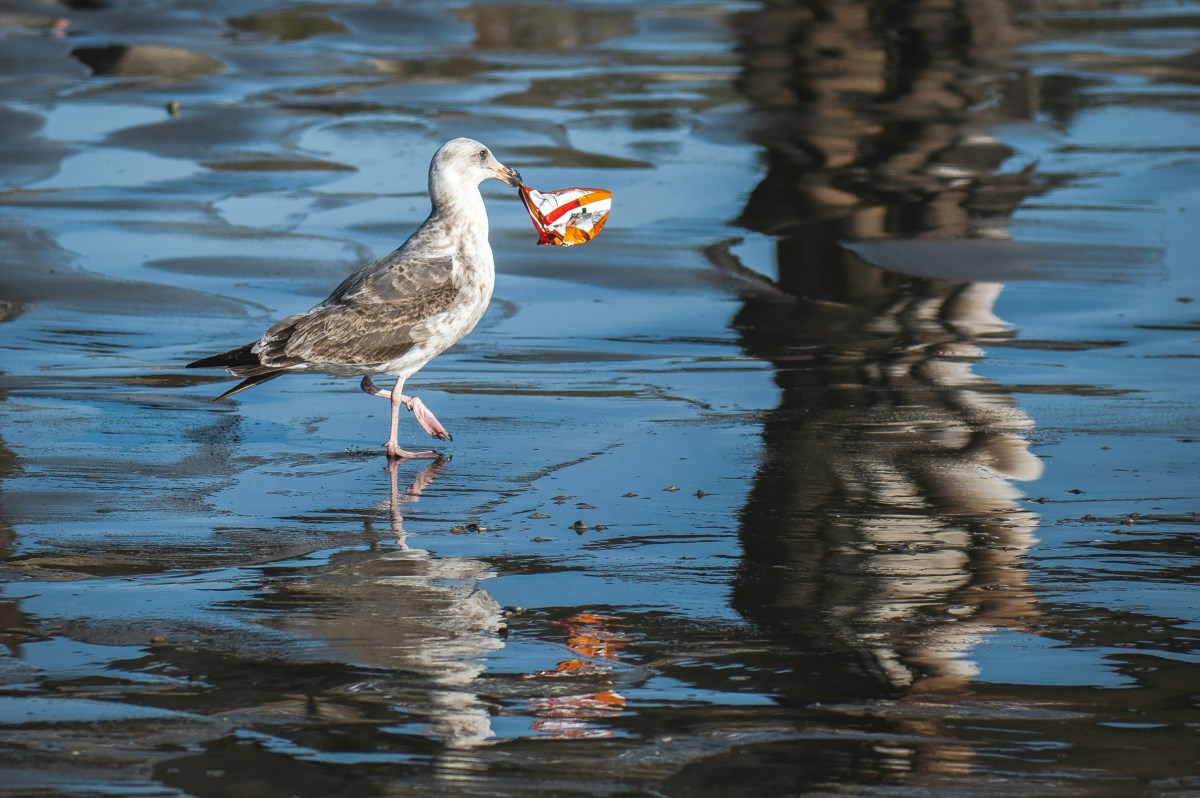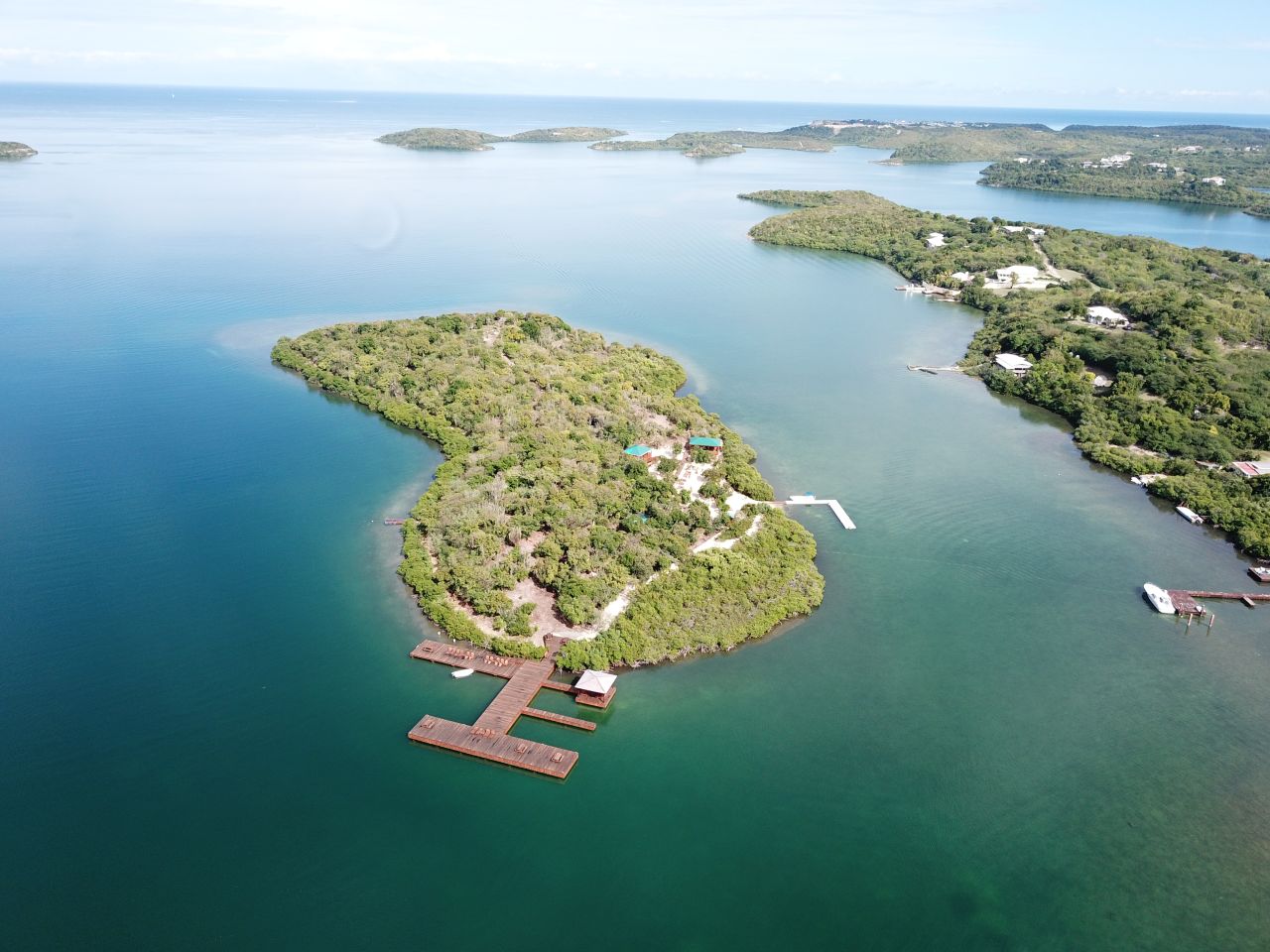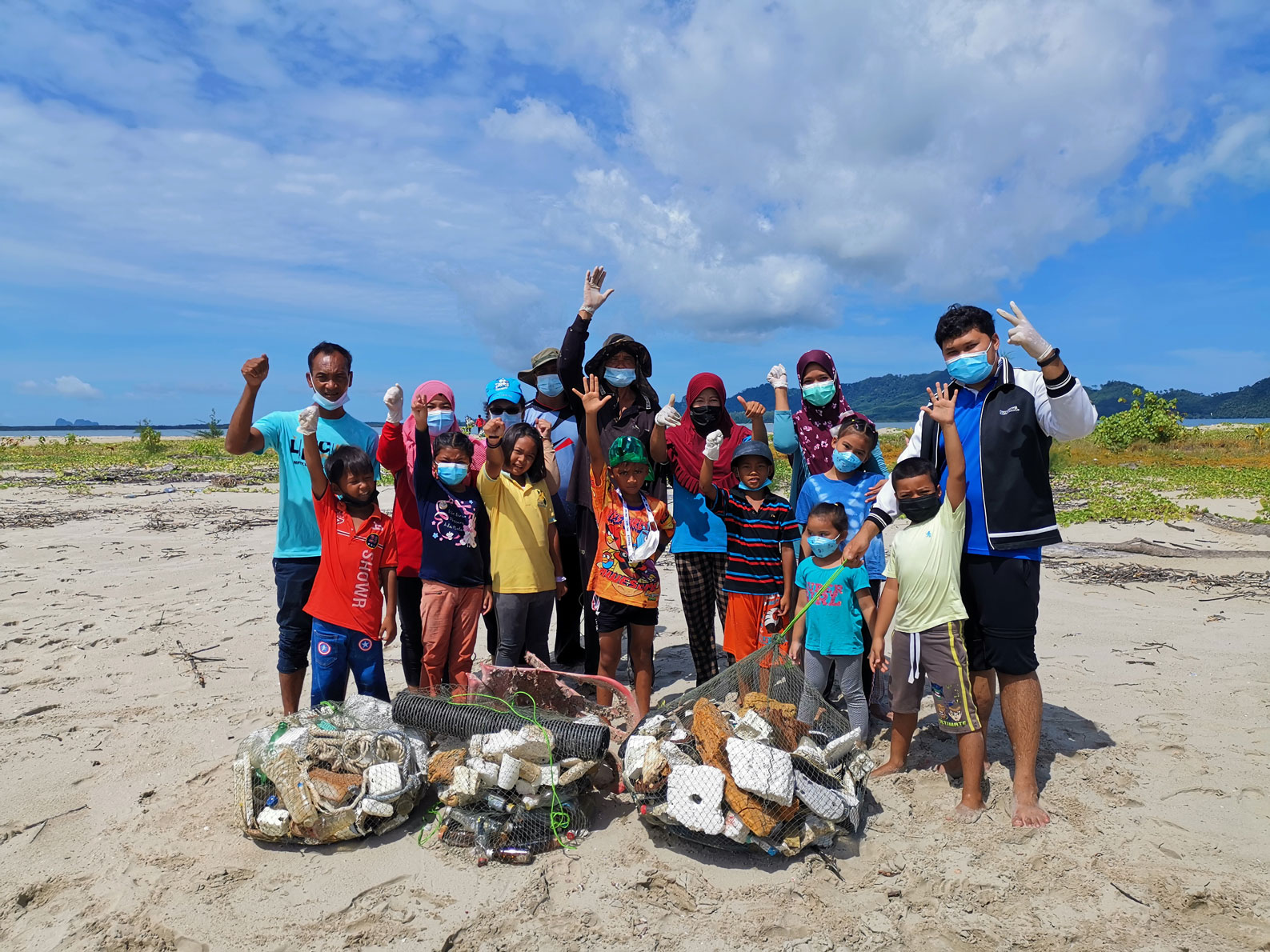“Together we are stronger”: the world moves toward a future plastics treaty, a fundamental shift for our plastic-filled world
The global community recently gathered in Canada, where concerns over the triple planetary crisis and problematic plastics converged to advance science and policy for a future Plastics Treaty that should address the full life cycle of plastics.
Highlights of the negotiations and the mandate to move forward
The event -- known formally as the Intergovernmental Negotiating Committee, or INC-4 -- opened in Ottawa where the Chair, Ambassador Luis Vayas Valdivieso, highlighted the true spirit of multilateralism, commenting, “Together, we are stronger.” He reminded the assembled group of States and stakeholders that ending plastic pollution is an imperative, due to its high social, economic, and environmental costs, and that tackling the problem could generate a set of clear economic benefits.
IUCN and the IUCN World Commission on Environmental Law (WCEL) joined Member State delegations and observers for the negotiations, held 23-29 April 2024. While in two Contact Groups and five Subgroups, countries were working together diligently to refine the Revised Zero Draft Text (RZD), which will become the first draft of an international legally binding treaty on plastic pollution that will include obligatory measures and financing mechanisms to close the plastics tap, noting that strong divergent views on the ambition and content of the future treaty remain.
By the end, the Committee mandated the INC Secretariat to issue a compilation document, which will be the starting point for negotiations at INC-5. The Committee further agreed on intersessional work to be carried out in the lead-up to INC-5, which will take place in Busan, South Korea in December. Two ad-hoc intersessional open-ended expert groups were established to be composed of Members and nominated experts in related topical fields.
The first group is tasked with analysing potential sources and means that could be mobilized to implement the International Legally Binding Instrument (ILBI) objectives, including options for the establishment of a financial mechanism to support the work that will be needed in developing countries and economies in transition, alignment of financial flows, and catalysing finance.
The second group will identify and analyse criteria and non-criteria-based approaches with regard to plastic products and chemicals of concern in plastic products and product design, focusing on recyclability and reusability of plastic products considering their uses and applications.
Although many Members had asked for it, no consensus was reached on further intersessional work on “Sustainable Production and Consumption on Primary Plastics Polymers”. In that sense, 28 Member States launched the Bridge to Busan Declaration on Primary Plastic Polymers. Interested Member States and stakeholders are encouraged to join this call to action on primary plastic polymers by signing the Declaration.
 Photo: ENB IISD
Photo: ENB IISD
Head of IUCN delegation, Dr Karine Siegwart (right) and IUCN World Commission on Environmental Law Chair of the Plastic Pollution Task Force, Dr Alexandra Harrington, at the INC-4 Contact Groups discussion, 27 April (photo, IISD, ENB)
Finally, the Committee agreed to establish an open-ended legal expert drafting group which will start during INC-5, to address fundamental questions of law and drafting.
Following the conclusion of INC-4 on 29 April, it is clear that:
-
A future Plastics Treaty must be clearly science-based and address all phases of the plastics lifecycle, not only downstream and waste management;
-
Biodiversity is missing as a key element of the draft text to date and IUCN, IUCN WCEL and champion nations must work to change this; and
-
Strong intersessional work that includes stakeholders with expertise will be critical to achieving a robust Treaty by the end of INC-5.
The importance of biodiversity in the future Treaty
Plastic pollution affects all land, freshwater, and marine ecosystems. It is a major driver of biodiversity loss and ecosystem degradation and contributes to climate change. Plastic pollution is a transboundary issue that can only be addressed by a treaty that is ambitious, inclusive, just, and gender-responsive, and covers the full life cycle of plastics, including the sustainable production and consumption of primary plastics polymers.
IUCN continued its efforts to include biodiversity-specific language and terms in the future treaty, emphasizing the need for convergence, coherence, and complementarity between different multilateral environmental agreements, and specifically with the Kunming-Montreal Global Biodiversity Framework and the High Seas Treaty/BBNJ, and the Ramsar Convention on Wetlands. Plenary interventions were promising, with some Members and groups of Member States urging intersessional work and some expressing support for including biodiversity in the treaty. Additionally, IUCN and IUCN WCEL began the framework for robust intersessional outreach and coordination with multiple States to ensure that biodiversity is at the legal and policy core of the future Plastics Treaty.
The importance of science and trade
These negotiations are complex and require current scientific knowledge to be understood by delegates and participants. Before negotiating, several important documents were produced by UNEP to support the negotiators, including the Plastic Pollution Science Paper. This paper provides delegations with content on the latest science for their better understanding of key concepts and terminology. It elaborates on the trends in plastic production, waste generation, and chemical use in manufacturing; plastic pollution sources and pathways in the environment; impacts; monitoring; and importantly solutions and technologies and their costs and benefits.
The financial and trade implications of the future Treaty are global as well as regional and national and formed an important part of this round of negotiations. IUCN recalls the need to highlight the links between trade and plastics pollution, as noted in a WTO Ministerial Statement which outlined principles and actions to ensure trade is part of the solution to the plastic pollution crisis. The global trade of plastics and plastic products that are harmful to the environment or human health, and unnecessary single-use plastics and packaging contribute to this global crisis. IUCN supports a reduction of production of primary plastics polymers and products at a sustainable level and the phasing out of harmful subsidies, as well as increased transparency of trade flows, including import and export data of plastics, which will be key aspects of the technical and legal discussions between the end of INC-4 and the opening of INC-5.
Inspiring Inclusiveness
 Photo: GYCPP
Photo: GYCPP
Youth delegates from Canada, USA, India, Trinidad and Tobago, Nigeria, and Kenya met with some of the IUCN delegation to discuss the INC proceedings, their views and needs, the IUCN Youth Strategy, and how they can make a difference in their countries. Photo shared by youth delegates from the Global Youth Coalition on Plastic Pollution (GYCPP).
The presence of youth, Indigenous Peoples groups, the informal sector, and traditionally underrepresented groups was a highlight at the INC-4 negotiations. Theirs are an important set of voices raised, since they are often more negatively impacted by plastic pollution and yet lack the resources to address these impacts. The youth delegation engaged at INC-4, which included 70 youth from over 20 countries as part of the Global Youth Coalition on Plastic Pollution (GYCPP), contributed an official statement that noted that a strong treaty needs to be designed to protect well-being of youth who have never known a plastic-free world. It was emphasised that the world we are leaving to future generations is at stake if we do not act now for a treaty that promotes just transition and protects human health and the environment, including biodiversity.
The road to Busan
Before INC-5 will be held in Busan, Republic of South Korea in November 2024, there is much work to be done. IUCN, IUCN WCEL, civil society groups, and scientists are sharing advice and knowledge with the negotiators to form a treaty based in science and with data that backs up the need for a strong treaty draft.
IUCN is part of a progressive majority sharing guidance on biodiversity aspects to include in the text. The road to Busan is instrumental for multilateral environmental diplomacy; the delegations must converge with existing frameworks and lead with science for the benefit of communities and ecosystems around the globe.
Additional information and resources
IUCN and IUCN’s WCEL stand ready to support negotiators and countries during intersessional period and beyond with legal and science-based advice in order to include biodiversity-specific language and terms in the future plastics treaty. IUCN has created tools to assess and measure the impact of plastic pollution on ecosystems and also provides a means to analyze the import and export of plastics and plastic products data. These tools and IUCN’s circular economic research provide useful results that can link to existing national policies to show Member States how to align their needs to address plastic pollution, legal and monitoring frameworks, including those that are likely to be created in the future plastics treaty. IUCN welcomes contact from Member States, IUCN Members, and civil society to discuss our solutions.
- IUCN INC-4 Materials
- Updated IUCN Plastic Pollution Issues Brief
- Closing statement of IUCN from INC-4
- A global plastics treaty and biodiversity: converging or conflicting regimes?
- INC-4 page (UNEP)
- Bridge to Busan
- IISD ENB news summary of INC-4
Contacts:
Karine Siegwart, Senior Policy Advisor, IUCN International Policy Centre: karine.siegwart@iucn.org
Alexandra R Harrington, Chair, IUCN WCEL Agreement on Plastic Pollution Task Force: arharrington@gmail.com
Lynn Sorrentino, Programme Officer, Ocean, IUCN Centre for Conservation Action: lynn.sorrentino@iucn.org
Disclaimer
Opinions expressed in posts featured on any Crossroads or other blogs and in related comments are those of the authors and do not necessarily reflect the opinions of IUCN or a consensus of its Member organisations.
IUCN moderates comments and reserves the right to remove posts that are deemed inappropriate, commercial in nature or unrelated to blog posts.



